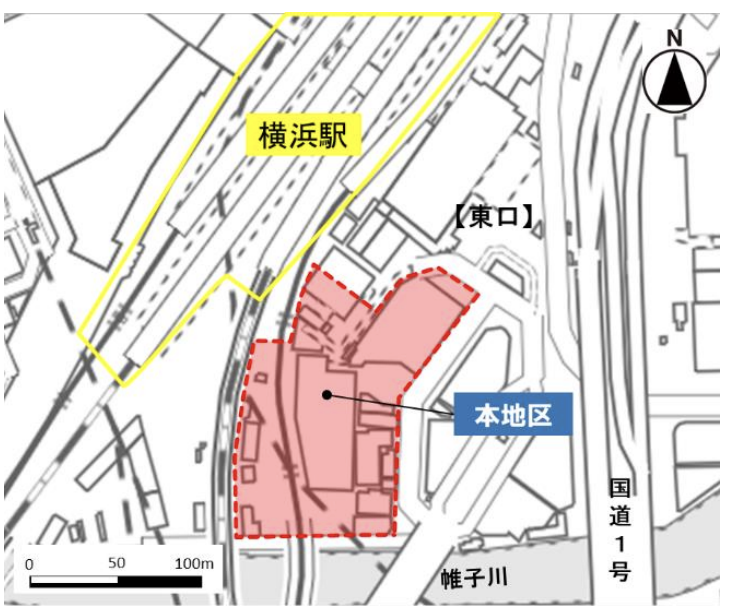The number of working professionals who engage in side hustles is increasing every year. In fact, according to the 2023 survey, about 22.6% of all respondents are working a second job, more than doubling since 2018. Interest in side hustles is expected to continue to grow due to high prices and income insecurity, with more than 80% of respondents indicating that they would like to start a side hustle in the future. Against this backdrop, real estate investment has become an option that is attracting the attention of even those new to side hustles. Real estate investment is a method of purchasing condominiums, apartments, and other properties and earning rental income from renting them, and has long been a popular investment method because it provides a stable income. So why is real estate investment so popular as a side business? This article explains the features,advantages, and disadvantages of real estate investment as a side business in an easy-to-understand manner for beginners.
What is real estate investment as a side business?
Real estate investment as a side job is to manage real estate rental properties while continuing your main job. Specifically, you purchase a property that you do not live in (such as a room in an apartment building, an apartment building, or a detached house) and rent it out to third parties to earn rental income. The income is then used to repay the loan and cover management costs, with the difference being the profit (rental income). When investing in real estate as a sideline business, it is common for people to obtain financing from financial institutions and purchase properties, taking advantage of their stable income and creditworthiness as company employees or civil servants. Once acquired, the property can be outsourced to a rental property management company, where daily management tasks (tenant recruitment, rent collection, handling complaints, cleaning and repair arrangements, etc.) can be entrusted to professionals. After purchasing a property, you can expect regular monthly rental income based on the contract, making it easy to manage the property in between your main job. In addition, depending on market conditions, the value of the property may increase and you may be able to make a profit on the sale of the property. On the other hand, rental management involves risks such aszero income when vacancies occur andthe time and effort required to manage the property, so it is important to understand these characteristics properly if you want to take on this as a side business.
Reasons why real estate investment is popular as a side business
There are several reasons why real estate investment is highly popular as a side business.
-
Representative of stable income: Real estate investment has always been popular as a typical example of a stable investment. The stability of not having to constantly check price fluctuations like stocks and FX, and having the contracted rent paid monthly, is a major attraction in side hustles. Especially in Japan, where interest rates remain low, it is attracting attention as a way to increase assets with higher yields than bank deposits.
-
Easy to engage in while working: Unlike affiliate and freelance side hustles, there is less need to devote working hours during the day, which is another reason for its popularity. Property selection and purchase procedures require time, but once operations begin, the management company can handle the work in your spare time. In addition, changes in work styles, such as the spread of teleworking, have also made it easier for company employees with busy day jobs to get into the property management business.
-
Asset Building and Future Preparation: Real estate investment is not only a way to earn extra income, but also a way to build assets for the future. Research shows that approximately 60% of investors in real estate are company employees, and an increasing number of them are seeking stability and financial independence in their retirement years by owning assets rather than relying solely on their salary. Owning real assets in the form of property can also serve as an inflation hedge, and is a suitable means for those who wish to increase their assets over the long term.
-
Lifting of the ban on side jobs by companies and improvement of creditworthiness: In recent years, companies have increasingly allowed their employees to take on side jobs, which has lowered the hurdle for company employees to become side landlords. Furthermore, it has been pointed out that becoming a property owner itself enhances one's social credibility. For example, a track record of owning real estate is likely to have a positive effect on loans from financial institutions, and the side job may have a positive impact on one's main business.
For these reasons, real estate investment is an attractive option for beginners. However, you should be aware of the risks as well as the attractions. In the next section, we will review each of the advantages and disadvantages of real estate investment.
Merits of Real Estate Investment (Attractiveness as a Side Job)
The advantages of real estate investment as a side business include the following
-
Stable income: Rental income from rental properties is a stable income that can be expected to be almost constant each month. The appeal of this type of income is that once you have established a system, you can earn income continuously and passively, rather than "only get what you work for" as in other side hustles. If properly managed, especially in areas with high housing needs, you can expect to maintain a high occupancy rate and improve profitability. It is a stock-type business that is not easily affected by the economy and will function as a safety net to supplement income from the core business.
-
Asset Building and Accumulation: Real estate is a physical asset and has asset value just by owning it, which is an advantage not found in other side businesses. If you use the monthly rental income to pay off the loan principal, you will have an asset in the form of real estate on hand in the future. If the price of the property increases from the time of purchase, you can also earn capital gains (profit on sale) from the sale of the property. It should also be noted that you can use the leverage effect of bank loans. Even with high value assets that would be difficult to acquire with personal funds alone, you may be able to build a large asset with a small amount of capital by using a loan. While held for a long period of time, it can also serve as a hedge against the decline in the value of money due to inflation, and can function as a substitute for a pension in old age oras an asset to pass on to one's children.
-
Flexibility of time and ease of release: Real estate investment is also excellent from the perspective of "how to work". After purchasing a property, you can outsource its rental management to a professional management company, leaving yourself virtually untouched. In many cases, the time allocated to this side job is 5 to 10 hours per week, making it a side job that does not interfere with your main job. For example, you can check the income and expenditure of properties and prepare tax returns late at night or on weekends, and there is basically no need to work on the side job during your main job's working hours. With a high degree of geographical flexibility, even distant properties can be outsourced for management or online, allowing you to earn income from the comfort of your own home. This flexibility in time and location makes it easy for even busy businesspeople to continue working.
-
Tax Advantages:Tax savings can be realized on income from real estate investments through various types of expenses. For example, interest on loans, property taxes, fire insurance, and repairs can be deducted from rental income as necessary expenses. A further unique item is depreciation. The purchase price of a building can be expensed annually over its useful life, reducing book profit as a non-cash expense. In fact, even transportation expenses to tour the property and food and beverage expenses for meetings with the real estate agent can be expensed. As a result, you may be able to reduce your total tax burden when combined with your main employment income (the so-called tax saving effect through profit-and-loss aggregation ). If expenses are handled appropriately, it will be easier to maximize the residual income and retain funds for future large-scale repairs and maintenance.
As described above, real estate investment has multifaceted advantages such asstable income, asset building, free working style, and tax reduction. These are the reasons why real estate investment is gaining popularity, as it is attractive even to beginners in side hustles.
Disadvantages of Real Estate Investment (Cautions as a Side Business)
On the other hand, there are demerits and risks to be aware of when investing in real estate as a side business. It is important to understand them along with the advantages and prepare for them in advance.
-
Vacancy risk: The biggest risk of real estate investment is the loss of income due to vacancy. If no tenants are found, the rental income will be zero, but the owner will continue to incur costs such as loan principal and interest payments and property taxes. Especially when investing in a single property, the impact of vacancies directly impacts the bottom line. Occupancy conditions fluctuate depending on local rental demand trends and the attractiveness of the property, so full occupancy is not always guaranteed. Countermeasures include purchasing high-demand properties by carefully selecting the right location, promptly recruiting and adjusting rents when vacancies occur, and diversifying risk by investing in multiple properties. It is also important to have a financial plan (securing funds on hand) based on the assumption that vacancies will occur for a certain period of time.
-
Initial investment capital burden: Real estate is a side business that requires a relatively large amount of capital. A portion of the property price must be funded with personal funds, and there are also ancillary expenses such as brokerage fees, registration fees, and taxes (e.g., real estate acquisition tax) when purchasing the property. Even if you obtain financing from a financial institution, you will be responsible for the long-term debt burden of monthly loan repayments. It is not easy to start a side business because it is not uncommon for property prices to be in the tens of millions of yen range, and the risks involved are high. There is also the risk of an increase in repayment if interest rates rise due to economic fluctuations, and the risk of a loss of principal if the market price falls below the purchase price when the property is sold in the future. In other words, real estate investment is a side business that requires a stance of increasing assets over the medium to long term rather than earning large returns in the short term. It is essential to have sufficient personal funds and a reasonable borrowing plan.
-
Management and operation:Property management is an integral part of rental management. As an owner, you have to deal with tenants, clean and maintain the property, restore the property to its original condition when tenants move out, and recruit new tenants. Outsourcing to a management company can save a lot of time and effort, but even in that case, there are costs involved, such as management fees (generally a few percent of the rent) and advertising fees for recruiting new tenants. If you manage the property yourself, the cost is lower, but you will need to devote more time and effort to it. There is no possibility of being forced to respond to emergencies (e.g., equipment breakdowns, neighborhood problems, etc.) at night or on holidays. There are cases in which what is intended to be a side job becomes more time-consuming than expected and affects the main business. In particular, as the number of properties increases, the management work becomes more complex, so it is necessary to consider in advance how much to do yourself and how much to entrust to a professional. In addition, once a year, tax returns must be filed, and bookkeeping and tax knowledge are unavoidable. It is important not to underestimate these administrative burdens and to be prepared for them.
-
Other Risk Factors: In addition to the above, there is liquidity risk in real estate investment. Like stocks, it is difficult to sell immediately for cash, and it takes time and commissions to sell. There is also the risk of disasters such as fire and earthquakes, for which insurance is required. Furthermore, changes in real estate market conditions and laws and regulations may change the premise of rental management. For example, if the population continues to decline, rental demand may taper off in some areas, and there is a non-zero possibility that tax system changes will reduce the preferential treatment for depreciation. In addition, beginners may face hurdles of expertise in selecting properties and negotiating contracts. If you do not have enough knowledge and end up with an unfavorable property at the behest of a solicitor, there is an increased risk that you will not be able to earn as much as you would like. It is essential to understand these various risks and to proceed with professional advice as necessary to succeed in real estate investment on the side.
These are the main disadvantages of real estate investment as a side business. However, these risks can be controlled to some extent by taking measures and acquiring knowledge in advance. Next, let's take a look at the key points for stable operation.
Key points for stable sideline real estate investment
With proper planning and management, real estate investment can be a side business that provides stable income over the long term. As Mr. Inazawa emphasizes, the key to success is to keep in mind " solid management. The following is a summary of key points for beginners to keep in mind in order to achieve stable results in real estate investment on the side.
-
Detailed financial planning: First, make a plan based on the balance between personal funds and borrowings. It is important to invest within a reasonable budget, taking into account not only the price of the property but also other expenses and immediate working capital (loan repayment, covering vacancy, reserve for repairs, etc.). Simulate future scenarios of rising interest rates and whether you can continue to make repayments even if your income declines, and develop a solid plan that does not result in a negative cash flow.
-
Careful property selection: It is said that property selection determines 90% of success or failure. Beginners should not be in a hurry, but rather should have access to a large amount of information on properties and develop a sense of the market. It is essential to comprehensively assess the location (distance from the nearest station, surrounding environment), condition and structure of the building, floor plan and facilities, market rent and the status of competing properties, etc. to determine a "good property" that can be expected to generate rental demand. If possible, it would be helpful to have a real estate agent or someone with experience accompany you to provide objective advice. It is no exaggeration to say that the effort you put into research and negotiation prior to purchase will largely determine the long-term stability of your income after purchase.
-
Use of reliable professionals: Professional help with rental management, tax reporting, etc. can lead to stable operations. A rental management company can maintain a high occupancy rate and respond quickly to problems, allowing you to focus on strategic decision making. Some companies, such as INA, offer transparent management services that make use of technology to minimize the burden on the owner and maximize profits by choosing such a partner. By choosing such a partner, you can minimize the burden on the owner while maximizing profits.
-
Long-term perspective and continuous learning: Real estate investment is not a short-term get-rich-quick scheme. It is important to keep abreast of market trends and changes in the tax system, and to keep updating your knowledge of rental management and real estate market conditions. Even after purchasing a property, we regularly review income and expenditures, revising rents and taking cost-cutting measures as necessary to improve management through the PDCA cycle. By having a managerial mindset in your side business as well as in your main business, you will be able to achieve stable management that is resistant to risk.
Based on the above points, even beginners can get their real estate investment steadily on track. The shortcut to a stable income is to have an awareness that it is a kind of business even though it is a side job, and to steadily repeat the plan → execution → verification → improvement cycle.
Conclusion
Real estate investment is a powerful means of earning a stable income as a side business. If you choose the right property and manage it systematically, you can secure a stable income in the form of monthly rent, while also building assets for the future. Because of this attraction, real estate investment is highly popular as a side business that can be started while working. On the other hand, there are disadvantages and risks such as vacancy risk, initial cost burden, and administrative hassles, so it is important to fully understand them before proceeding with preparations. As Daisuke Inazawa states, solid management based on trust and planning is the key to successful real estate investment.
If you are a beginner in the side business, start with small steps first. As you gather information and consult with experts, you will get an overall picture of real estate investment. Then, if you act according to the correct knowledge and strategy, real estate investment can become a stable source of income as a side business. Why not try real estate investment as a side business in a way that suits you, with the aim of building future assets and increasing your income?

Daisuke Inazawa
Representative Director of INA&Associates Inc. Based in Osaka, Tokyo, and Kanagawa, he is engaged in real estate sales, leasing, and management. He provides services based on his extensive experience in the real estate industry. Based on the philosophy that “human resources are a company's most important asset,” he places great importance on human resource development. He continues to take on the challenge of creating sustainable corporate value.

.png)













